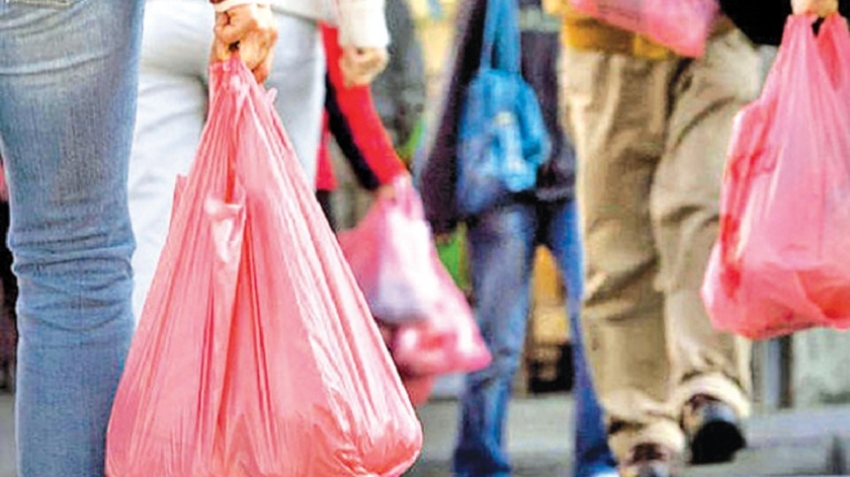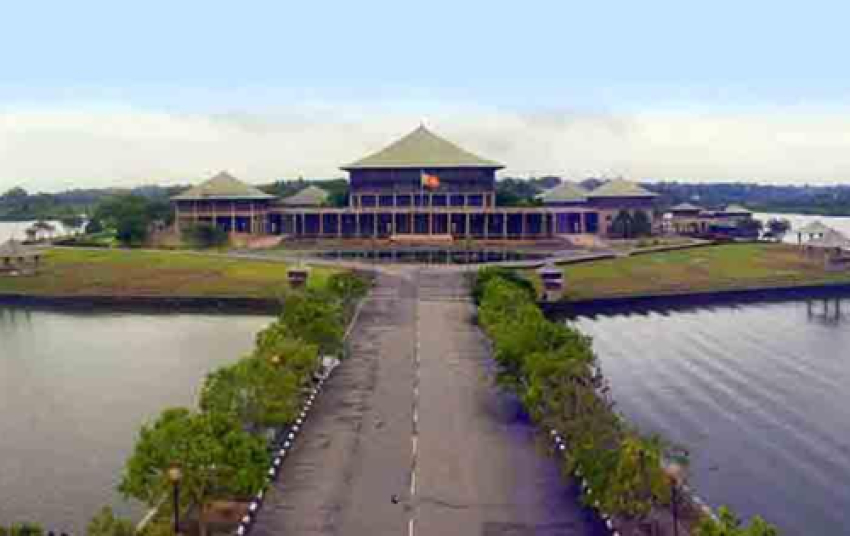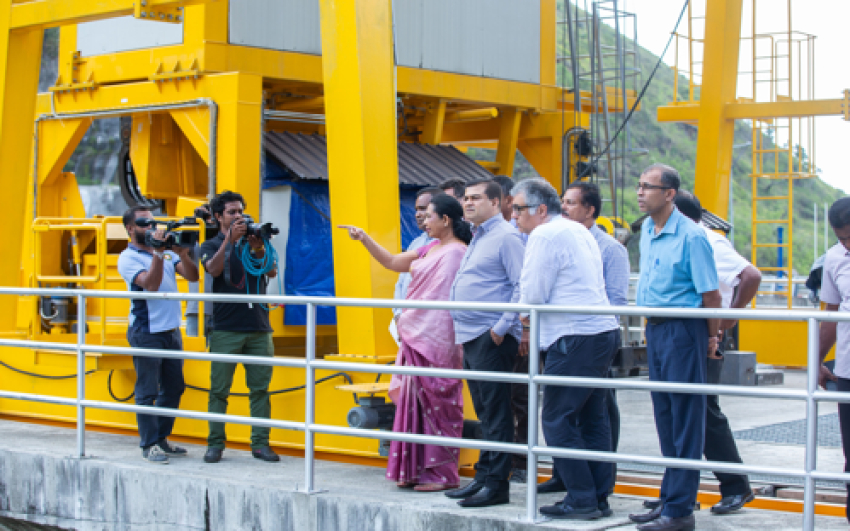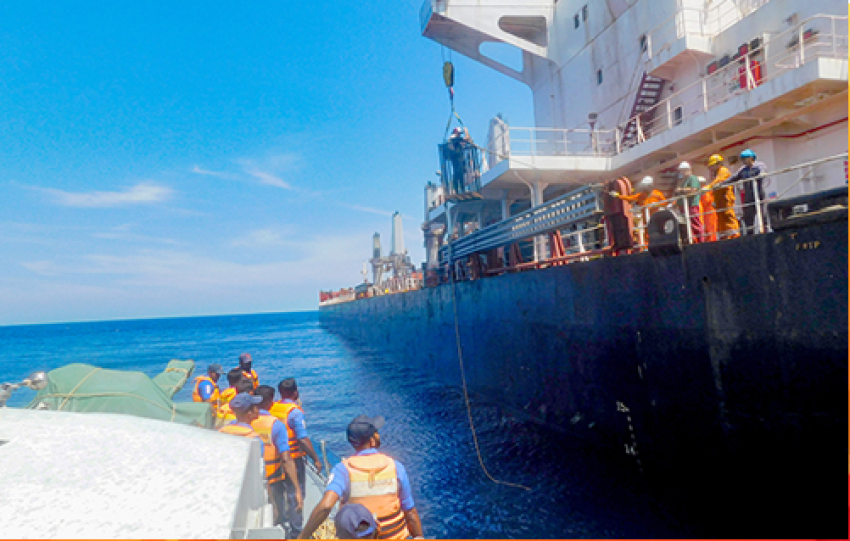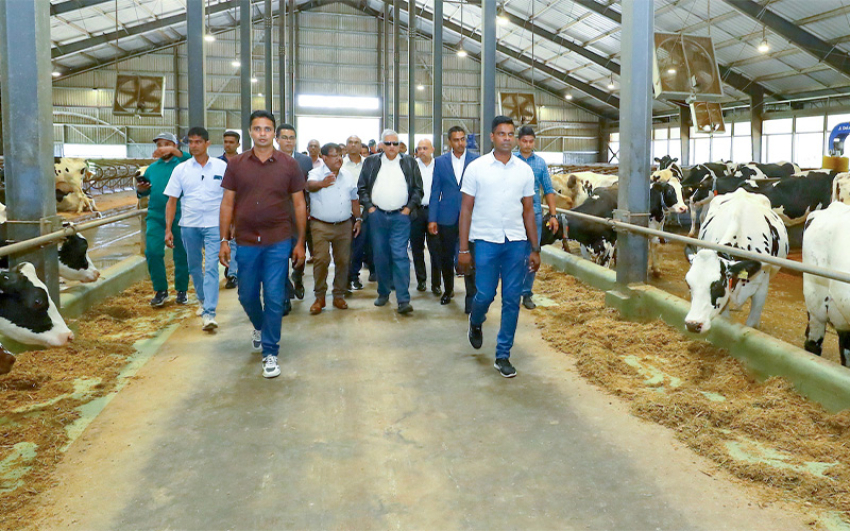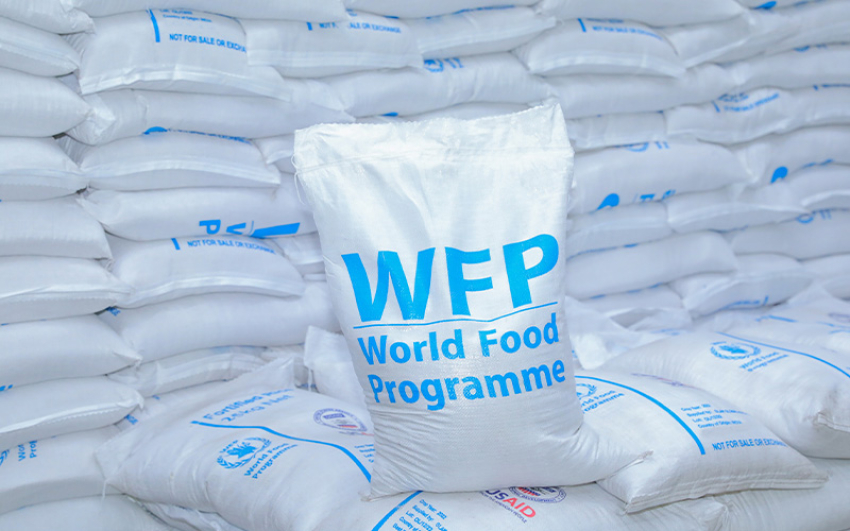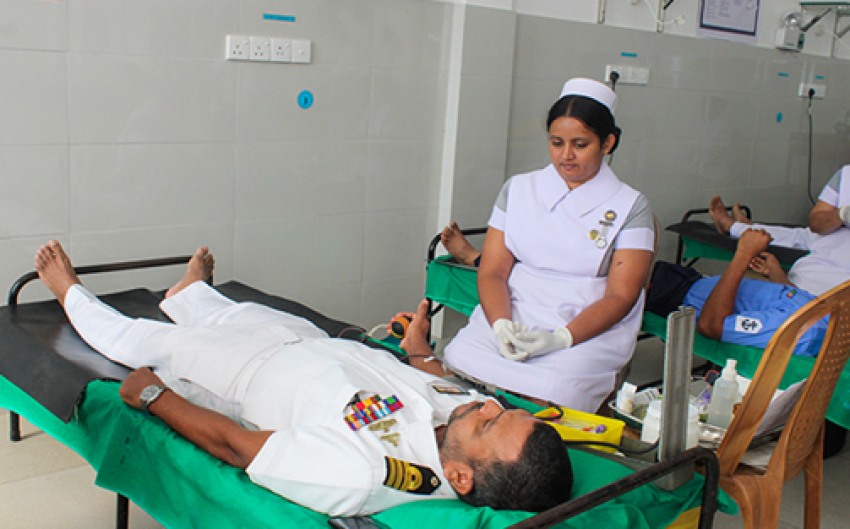The use and production of polythene, sili sili bags, grocery bags and humble lunch sheets was banned in Sri Lanka in September 2017.While some applauded the step pointing to the detrimental effects of polythene waste on the environment, others protested, stating the lack of alternatives and the effect of the ban on their livelihoods. Almost two years on, has Sri Lanka been weaned off its reliance on polythene?
Researchers at the Hector Kobbekaduwa Agrarian Research and Training Institute (HARTI) collected interesting information during an extensive study conducted on the situation following this polythene ban. They collected information from government institutions, non-governmental organisations, material researchers, major foodstuff producers, polythene manufacturers, supermarket chains, grocery shops, food vendors, entrepreneurs, plastic collectors and recyclers as well as the public. Overall, about 1,400 individuals were interviewed in this study which mainly focused on the Western Province.
According to Gazette No. 2034/34, as of September 1, 2017, the manufacture, trade and use of polythene lunch sheets has been banned. Additionally, Gazette No. 2034/35 states that grocery bags made from high-density polyethylene (HDPE) are prohibited from being produced and sold. It means that all lunch sheets used in Sri Lanka should be made of a non-polythene biodegradable material, while grocery bags must be manufactured using low-density polyethylene (LDPE) or other (preferably biodegradable) substance.
Manufacturers have apparently shifted to producing starch-based lunch sheets that naturally decompose within a relatively short period after disposal. The main shift in grocery bag production was from HDPE to an equally non-degradable LDPE. But it appeared that the public has been largely misinformed regarding this situation as the study found 31 percent of the surveyed public assumed that the newer grocery bags were biodegradable, while 41 percent were unsure about its nature.
It was widely reported that the grocery bags available following the ban were of inferior strength requiring the use of double bagging to perform the task of a single HDPE bag used before. Sixty-seven percent of the consumers interviewed in the research had pointed out this issue, while 74 percent of the supermarkets had reported higher bag consumption than before. According to manufacturers of grocery bags, compared to the previously used HDPE, currently used LDPE-based bags were not only of lower strength, but also incurred a higher production cost while also being more difficult to recycle after use.
A similar issue was raised with regard to new lunch sheets by 74 percent of the food vendors surveyed. They complained that these lunch sheets were easily damaged leading to leaking of wrapped food while also making the wrapping process more difficult compared to the polythene sheets used before.
The quality of new grocery bags had resulted in an apparent increase in polythene bag use. The higher price of alternative products for grocery bags and lunch sheets has made the shift to more eco-friendly options less attractive. The ban appeared to have resulted in the exact opposite of what was intended. Therefore, it is not surprising that 60 percent of those interviewed in this study considered the polythene ban to be a failure. Only 20 percent was of the opinion that it was effective.
All polythene grocery bag producers had to convert their machines to comply with LDPE-based production with an estimated expense of around Rs. 400,000 per machine. Even though the government had promised to reimburse 50 percent of this cost, the manufacturers complained that this payment was made only for a single machine, while those with more than one machine had to bear the total cost for the remainder by themselves.
Another aspect uncovered in the study was the prevalence of black market polythene lunch sheets, which sometimes passes off as biodegradable products. This was a major concern raised by manufacturers of biodegradable lunch sheets as they have to compete with low-priced fakes that undermine the environmental benefits of the imposed regulations. The presence of polythene lunch sheets in the market was further confirmed by the finding that 25 percent of the food vendors were still using LDPE sheets in their shops and stalls when serving and wrapping food.
Enforcement of the law by the government would play a major role in making the polythene ban effective. According to the Central Environmental Authority (CEA), an increasing number of inspections and raids have been carried out at retail shops, supermarkets and manufacturing facilities to detect illegal polythene products. These have resulted in many cases of confiscations, issuance of fines, and prosecutions on those found to be in possession of unauthorised grocery bags and lunch sheets.
Yet, the researchers found quite a few limitations in the processes used in the detection of illegal products. The government has to rely on importation certificates confirming the legitimacy of the raw materials used in the manufacturing process, while having only limited resources and methods to check for banned substances in the finished products. It was also identified that the government sector at present has no laboratory facilities to test the degradability of materials, so as to confirm that the ultimate aim is fulfilled by the manufacturer.
Another dimension of polythene waste is the recycling process. The collection and recycling of plastics (including polythene) is a business that has the potential to minimise environmental damage while leading to income generation for many. The study was able to find that the amount of plastic waste generated per year by a single Sri Lankan on average is around 11 kilogrammes. Not only does this point to the immensity of its possible environmental impact, but also of its potential to become an abundant raw material source for the recycling industry.
When attempting to interview plastic collectors and recyclers registered at the CEA, it was found that 42 percent of those contacted had given up the business. Of those who were still functioning, 86 percent complained that there was minimal assistance or encouragement by authorities for continuing and improving their industry. Unless there is economic viability and a sufficient amount of easily accessible material, the waste collection and recycling sector would gradually ‘degrade’ over time. It would be in the best interests of the authorities (local and national) to promote and maintain this sector by formally incorporating it into the waste management process.
The new laws may have expected to push consumers towards more environmental-friendly alternatives for grocery bags and lunch sheets. Entrepreneurs who have introduced and attempted to promote materials and products as substitutes have expressed their disappointment to authorities who have done a little in terms of providing support. This was clear with what was observed in the study, where very few alternative products were found to be available and in use.
Of those that are being visibly utilised as alternatives for lunch sheets in the Western Province, the most prominent were banana leaves, arecanut leaves (kolapath) and lotus leaves (used by food vendors). Yet, the researchers found that 97 percent of food vendors are still relying on the use of lunch sheets in their businesses. The most common alternatives identified for polythene grocery bags at supermarkets and grocery stores were fabric bags, paper bags and bags made of starch-based biodegradable plastics. Some of the main reasons why these alternatives for lunch sheets and polythene bags have failed to become popular included the disadvantages they have in terms of price, availability and convenience.
When attempting to identify the most-favoured alternative for polythene shopping bags, the study found that cloth bags were rated higher than others due to its physical quality, but the high price acted as the main limit for its popularity.
One of the suggestions made by the researchers in this regard was the encouragement of establishing public–private partnerships for manufacturing innovative eco-friendly substitutes aimed at bringing down their prices while popularising the products.
Suggestions
An interesting finding prominently pointed out in this research was the presence of an Act that would have been a major contributor to the excessive use of polythene grocery bags and lunch sheets over the years. Consumer Affairs Authority Act No. 9 states that “no trader shall at the time of selling of goods levy any charge directly or indirectly on consumers for any type of bags or wrappers issued to the consumers.” Amendment or abolition of this Act could pave the way for retailers and food vendors to introduce a system of charging the customer for any bags or wrappers they request, while competitively promoting the use of biodegradable alternatives and even the reuse of polythene bags.
Even though some supermarkets in Sri Lanka have already introduced commendable steps such as providing loyalty card points and discounts for bringing your own reusable bag, the researchers suggest taking it a step further to bring in a points system for reusing your old plastic bags as well. If the government could intervene and negotiate the use of such incentive programmes across all supermarket chains in Sri Lanka, it could go a long way in limiting the consumption of plastic bags in the country.
A method that has already been implemented in other countries and discussed previously in Sri Lanka for managing plastic waste is that the ‘polluter pays, by way of extended producer responsibility.’ In this approach, producers are held responsible for the plastics and packaging they manufacture or use within the entire lifecycle of the product. The producers themselves would have to take steps to establish a system that recovers and manages the waste generated from their product. Along with this, the researchers stress the importance of establishing a proper packaging policy for industries in the country. This would standardise the methods and materials used in packaging, so that their recovery and recyclability would improve in addition to other aspects such as hygiene.
Sri Lanka has a long way to go before polythene waste management, let alone overall waste management, reaches a satisfactorily sustainable state. It is hoped that authorities would take measures in the future in this regard in a more rational manner with prior consultation with experts while taking into consideration the opinions of relevant stakeholders and openly communicating the approach and its basis to the public, so as to avoid the shortcomings of the polythene ban of 2017.

